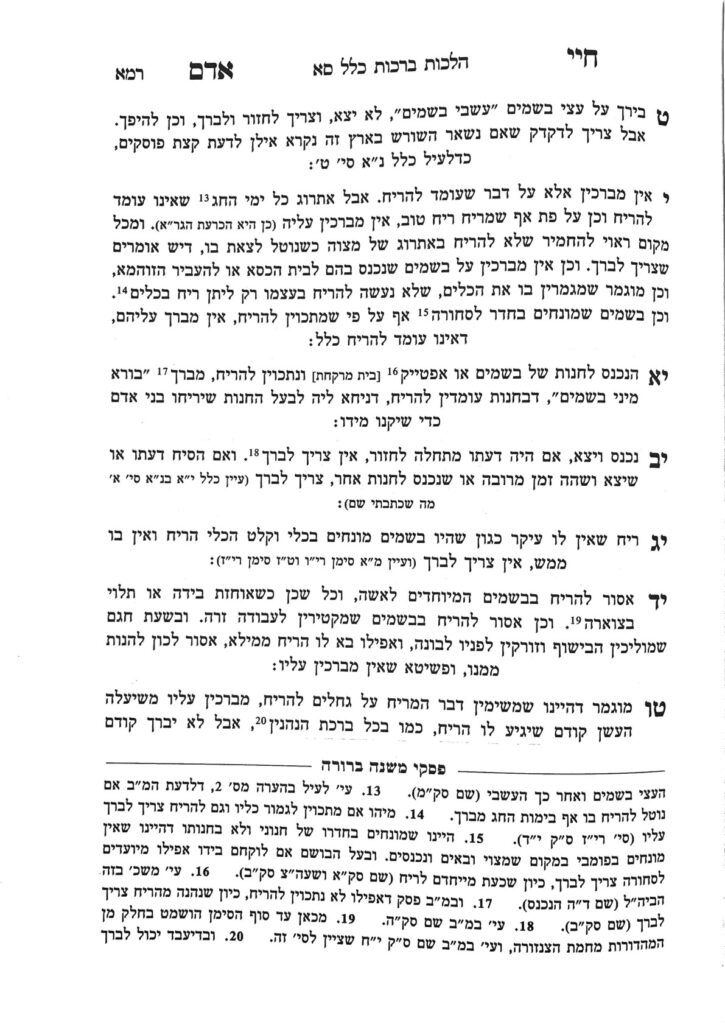We are beginning siman 12. The Chayei Adam continues discussing the halachos of a perfumery; specifically, how often the bracha is made. If one leaves the store with the intent to return, the leaving is not considered a hefsek, and one does not make a new bracha upon their return. If one leaves and effects a hesech hadaas on the smell (they have deliberate intent that they no longer wish to return to the store), or did not have any particular intent but remained away for a long time, or went into a different store, they require a new bracha.
The implication of the Chayei Adam is that if one remains in the store for an extended time, such as an employee, they make a bracha at the beginning and it will last the entire day
The Chayei Adam wrote that unless one effects a hesech hadaas, the bracha extends–even if there is a shinui makom–as long as it is not for a long time. Regarding food, we have learned that Ashkenazim pasken that foods which require a bracha achrona in the place in which they were consumed retain their bracha even if one effects a shinui makom. Since one must return to the original place, we consider it as though the person never left. However, other foods lose their bracha through a shinui makom. Over here, the Chayei Adam writes that shinui makom does not necessitate a new bracha. Why is smell different than food?
The Magen Avraham brings two answers, only one of which the Mishnah Berurah accepts.The Magen Avraham’s first answer is that when it comes to food, the item in question is a new item. When one makes a bracha on food, we have learned that the bracha takes effect on the first bite, and then extends to other bites in that eating session. When one effects a shinui makom, they end their session. Therefore, the bracha can no longer extend to new foods or bite. However, the bracha on smell takes effect on the item (similar to food), and you return to the same item again the next time even with a shinui makom, so no new bracha is necessary.
The second answer, which the Mishnah Berurah brings as well, is that eating requires an action, while smell comes to a person without doing anything. However, this answer will only apply to a situation such as a perfumery, where the smell wafts towards one without picking up the item, and one can make a bracha on that alone. If one has to pick up the item in order to make a bracha on it’s smell, it would require a new bracha, because an action needed to be done. Since the Mishnah Berurah only brings the second answer, we pasken accordingly, and make a new bracha on an item which requires an action to make a bracha on it’s smell, i.e. some of the cases mentioned in earlier shiurim
We will clarify more of these points in the upcoming shiurim, be’ezras Hashem.
Summary
- If one makes a bracha on smell, the bracha will extend for as long as they remain in that makom.
- If one leaves and effects a hesech hadaas on the smell, or did not have any particular intent but remained away for a long time, or went into a different store, they require a new bracha.
- If one leaves but does not fulfil any of these requirements, their bracha extends, provided that the smell wafts toward the person by itself and without any action when they return.



